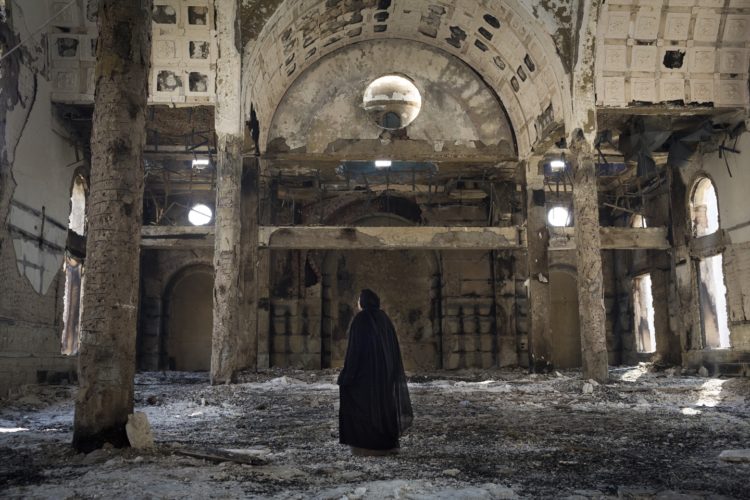
Attacks by members of the Islamic State group against Egypt’s Coptic Christian community “were among the deadliest acts of religious persecution” last year, according a new report presented in Washington DC yesterday, 13 September.
“Fifty-three per cent of ISIS attacks against the public in 2017 were aimed at the Coptic community,” described by the Islamist group as its “favourite prey”, having threatened “to eliminate all ‘worshippers of the Cross’”, according to the Global Extremism Monitor for 2017, published by the Tony Blair Institute for Global Change.
Among other attacks, IS claimed responsibility for three church bombings in Egypt in 2016 and 2017 in which 70 people were killed and more than 100 injured.
“Overall, the Middle East’s Christian population is in decline,” the report noted, confirming earlier reports by World Watch Monitor. “Christians make up some four per cent of the region’s population today, compared with 20 per cent before the First World War,” it said.
Fragile states and conflict zones
Violent Islamist extremism killed at least 84,023 people globally in 2017, according to the report, with Syria being the deadliest country.
“Islamist extremism didn’t begin with Al-Qaeda, nor will it end with the defeat of ISIS,” said former UK prime minister Tony Blair, in the report’s foreword. “Guided by a transnational religious-political ideology going back over half a century, the more than 120 groups my institute has documented believe that anyone who doesn’t adhere to their totalitarian thinking is a legitimate target.”
Together, the more than 120 groups were responsible for 27,092 incidents in 66 countries. Besides causing widespread destruction, the attacks killed extremists (57%), civilians (26%), security personnel (12%) and non-state actors (4%). In Syria alone 34,853 people lost their lives in 2017 due to violent Islamist extremism.
More than 90 Islamist groups committed violent attacks in at least one country in 2017, according to the report, which said: “Nigeria’s Boko Haram and Mali’s Jama’at Nasr al-Islam wal Muslimin demonstrated the fluidity of violence across the Sahel and Lake Chad Basin, instigating attacks in four countries each.”
Yet, sectarianism was the root of most attacks, with 95 per cent targeting Shia Muslims. Hence, most of the victims of violent Islamist extremism in 2017 were Muslims, the report noted.
Fragile states and conflict zones are particularly vulnerable, as they present a vacuum that Islamist extremists exploit, the report said. Five of the ten deadliest countries in 2017 were very fragile states: Somalia, Yemen, Syria, Afghanistan and Iraq.
Women are also taking part in plotting and executing attacks on civilians, with Boko Haram being the largest “employer”, according to the report.
“Of all suicide attacks conducted for Boko Haram last year, attacks by women had a 6 percentage point lower interception rate than those by men,” it said.
‘Tackle underlying ideology’
Many of the violent groups have roots in movements that are decades-old, according to Blair. “From the Muslim Brotherhood, which armed its members in the 1940s on an anti-imperialist mission, to the band of international fighters who once fought against the Soviets in Afghanistan in the 1980s, to the creation of Hezbollah in Lebanon following the Iranian Revolution in 1979, this ideology has festered and spread across borders,” he said.
The military containment of the Islamist threat and expansion is limited, the report added, saying that although Islamic State has been defeated in some areas, violence fuelled by Islamist extremist ideology takes place in other parts of the world where both ISIS and Al-Qaeda “continue to inspire attacks”.
Blair criticised the over-emphasis on increasing security in response to violence. “Presently, the world collectively spends hundreds of billions of dollars every year on additional security in airports, protection and counter-terrorism. It spends a small fraction of that on soft-power measures that tackle the underlying ideology,” he said.
Instead, the report suggests that for the ideology to be defeated, a “comprehensive, multifaceted strategy” is needed which involves education, exposure of the “false readings groups use to justify their acts”, empowering community leaders and providing government institutions with resources to support them, and the use of evidence-based research and data.
